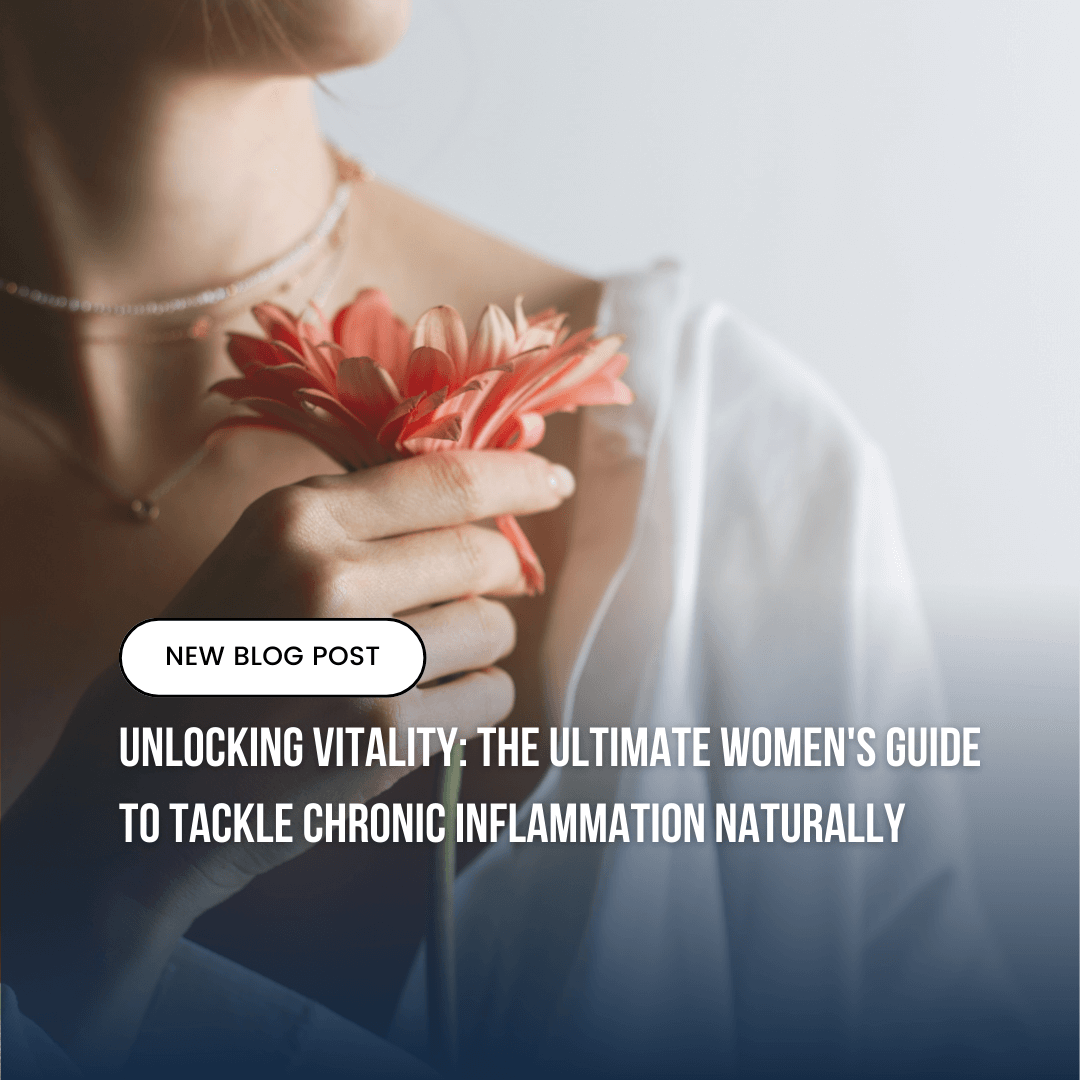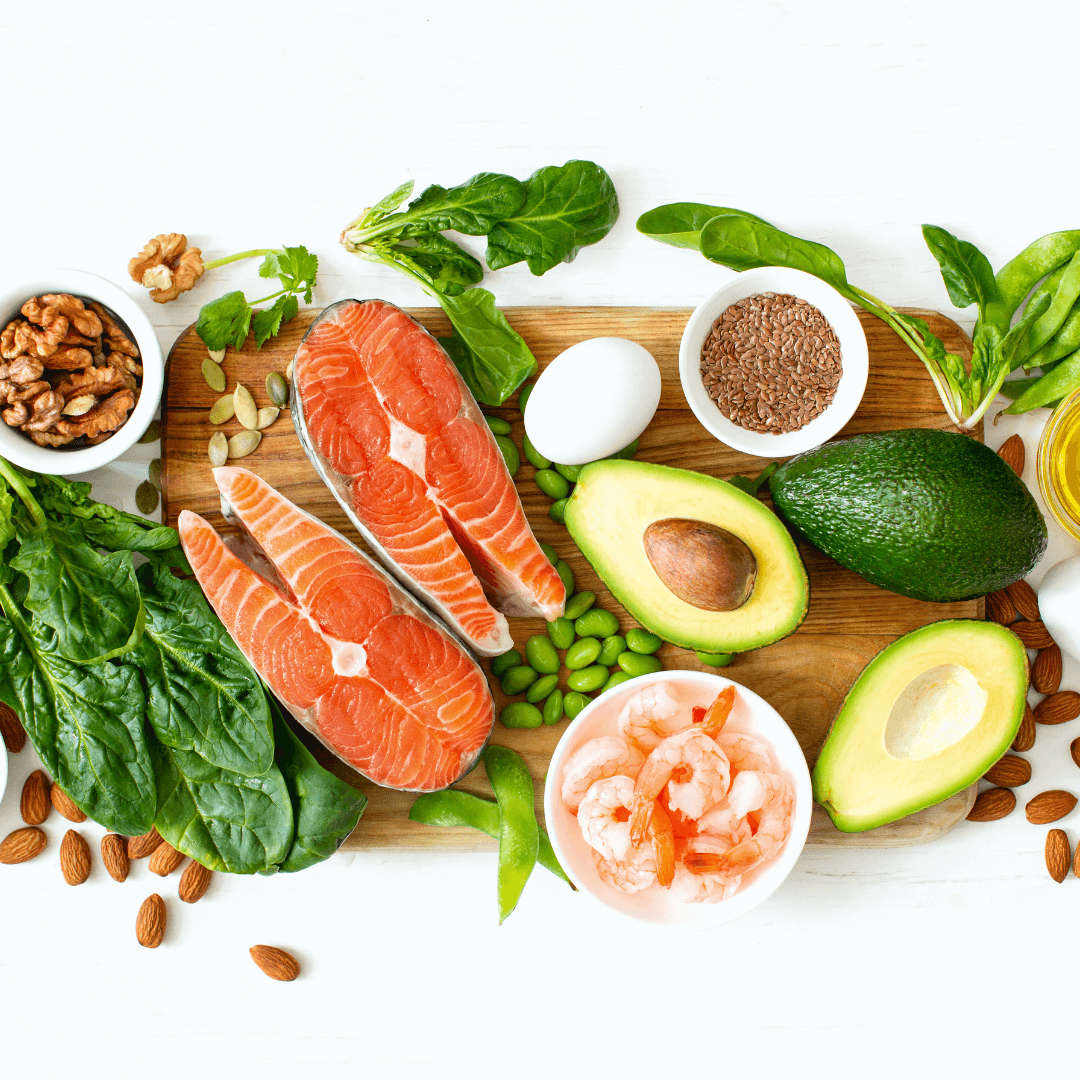
Are you tired of feeling worn out and achy all the time? Constant fatigue and body aches could be signs of chronic inflammation wreaking havoc on your health. But don't worry, because we have the ultimate solution for you. Welcome to 'Unlocking Vitality: The Ultimate Women's Guide to Tackle Chronic Inflammation Naturally'.
In this comprehensive guide, we will discuss the causes and effects of chronic inflammation, providing valuable insights and strategies for combating it naturally. We aim to empower women with the knowledge they need to take control of their health and reclaim their vitality.
You'll discover how to balance your body's inflammation levels and unlock a new lease on life through the power of nutrition, exercise, and lifestyle changes. We'll cover everything from anti-inflammatory foods and supplements to stress management techniques and exercise routines tailored specifically to women.
Say goodbye to constant fatigue and pain, and hello to renewed energy and vitality. It's time to embark on a journey of healing and transformation. Get ready to unlock the secrets of tackling chronic inflammation naturally.
According to the CDC, chronic inflammation is linked to numerous health conditions, making it essential for women to understand its implications.
1. Understanding Chronic Inflammation and Its Impact on Women's Health
Chronic inflammation is a prolonged and systemic response that can significantly affect women's health. Unlike acute inflammation, which is a protective response to injury or infection, chronic inflammation persists over time and can lead to a myriad of health issues. This condition is often hidden, silently disrupting bodily functions and causing damage at the cellular level. For women, it can manifest in various ways, impacting hormonal balance, immune function, and even emotional well-being.

The consequences of chronic inflammation can be particularly severe for women, who may already face unique health challenges. Inflammatory processes can exacerbate conditions such as autoimmune disorders, fibromyalgia, and even reproductive issues. Moreover, chronic inflammation has been linked to serious diseases like heart disease, diabetes, and certain cancers, making it essential for women to understand its implications. Awareness is the first step toward prevention and management, enabling women to take control of their health.
Understanding the connection between chronic inflammation and women’s health empowers individuals to seek targeted interventions. By recognizing the signs and symptoms, women can better navigate their health journeys. This knowledge paves the way for holistic strategies that enhance overall well-being, helping to mitigate the effects of chronic inflammation and reclaim vitality.
2. Common Causes and Symptoms of Chronic Inflammation
Many factors contribute to the onset of chronic inflammation, and understanding these causes is crucial for prevention. Lifestyle choices, including poor diet, lack of exercise, and stress, play significant roles. Consuming highly processed foods, rich in sugars and unhealthy fats, can trigger inflammatory responses in the body. Additionally, environmental factors such as pollution and exposure to toxins can further exacerbate inflammation, creating a vicious cycle of health issues.

Symptoms of chronic inflammation can vary widely, making it difficult to diagnose. Common signs include persistent fatigue, joint pain, muscle stiffness, and digestive issues. Women may also experience mood fluctuations, skin problems, or even weight gain, all of which can be linked to underlying inflammatory processes. This diverse symptomatology underscores the importance of recognizing chronic inflammation as a potential root cause of various health complaints.
By identifying the root causes and symptoms, women can take proactive steps toward addressing inflammation in their lives. Keeping a symptom diary, noting patterns and triggers, may help in understanding personal health challenges. This awareness will not only aid in managing existing symptoms but also serve as a preventative measure against future health complications.
3. The Role of Diet in Combating Chronic Inflammation
Diet plays a pivotal role in managing chronic inflammation, as certain foods can either trigger or alleviate inflammatory responses. The modern diet, often characterized by high levels of processed foods, sugar, and unhealthy fats, can contribute significantly to inflammation. Conversely, a whole-foods-based diet rich in nutrients can help balance inflammation levels and support overall health. Understanding how dietary choices impact inflammation is crucial for women looking to reclaim their vitality.

Incorporating anti-inflammatory foods into daily meals is a powerful strategy against chronic inflammation:
- Foods rich in antioxidants, such as fruits and vegetables, help neutralize free radicals and reduce oxidative stress.
- Omega-3 fatty acids, found in fatty fish, walnuts, and flaxseeds, are particularly effective in combating inflammation.
- Herbs and Spices: Turmeric, known for its active compound curcumin, is a potent anti-inflammatory.
By shifting focus towards nutrient-dense foods, women can create meals that not only taste great but also promote optimal health.
Moreover, the timing and method of food preparation can also influence inflammation. Cooking methods such as steaming and grilling are preferable to frying, which can introduce harmful compounds. Additionally, practicing mindful eating by paying attention to hunger cues and savoring meals can enhance digestion and reduce stress, further supporting anti-inflammatory efforts. By making conscious dietary choices, women can forge a path towards improved health and diminished inflammation.
Studies suggest that curcumin, the active compound in turmeric, has powerful anti-inflammatory effects that can aid in managing chronic inflammation (source).
4. Essential Nutrients and Foods to Include in an Anti-Inflammatory Diet
To effectively combat chronic inflammation, certain nutrients and foods should be prioritized in the diet. First and foremost, antioxidants play a crucial role in reducing inflammation. Vitamins C and E, along with selenium, can be found in various fruits, nuts, and seeds. Berries, especially blueberries and strawberries, are particularly rich in antioxidants, making them an ideal snack for those looking to curb inflammation.

Another vital component is fiber, which supports gut health and helps to regulate the immune system. Foods high in fiber, such as legumes, whole grains, and vegetables, can promote a healthy gut microbiome, which is increasingly recognized as key in managing inflammation. The connection between gut health and inflammation is profound, and incorporating fiber-rich foods can help mitigate chronic inflammatory conditions.
Additionally, healthy fats are essential for an anti-inflammatory diet. The Mediterranean diet, which emphasizes olive oil, avocados, and nuts, has been shown to reduce markers of inflammation. Turmeric, with its active compound curcumin, has also gained attention for its potent anti-inflammatory properties. By combining these essential nutrients and foods, women can create a robust dietary framework that effectively combats chronic inflammation.
Consider adding a high-quality turmeric supplement, like our Inflammation Relief Supplement, to boost your intake of curcumin and support an anti-inflammatory diet.
5. The Importance of Regular Exercise and Physical Activity
Regular exercise is a cornerstone in managing chronic inflammation and enhancing overall health. Engaging in physical activity helps to improve circulation, reduce stress, and promote the release of anti-inflammatory cytokines. For women, maintaining an active lifestyle is particularly crucial as it combats the adverse effects of hormonal changes throughout different life stages. Whether it's walking, yoga, or strength training, incorporating movement into daily routines can significantly reduce inflammation.

Furthermore, exercise has been shown to have profound effects on mental health, which can, in turn, influence inflammation levels. Physical activity releases endorphins, the body's natural mood lifters, helping to combat stress and anxiety. Chronic stress is a known contributor to inflammation, so finding enjoyable ways to stay active can create a positive feedback loop of health benefits. Women can explore various forms of exercise to find what resonates with them, making it more likely they'll stick with it long-term.
It's essential to note that the intensity and type of exercise should be tailored to individual needs and capabilities. While high-intensity workouts can be beneficial, low-impact activities like walking or swimming can also yield significant health benefits. Listening to one’s body and understanding its limits is key to adopting a sustainable exercise routine that effectively minimizes chronic inflammation.
6. Stress Management Techniques for Reducing Inflammation
Stress can be a significant driver of chronic inflammation, particularly for women who often juggle multiple responsibilities. Developing effective stress management techniques is essential for promoting overall health and reducing inflammatory responses. Mindfulness practices, such as meditation and deep breathing exercises, can help calm the mind and body, lowering stress hormone levels. These techniques can be easily integrated into daily life, providing moments of tranquility amidst hectic schedules.

Another effective method for managing stress is engaging in creative activities. Whether it's painting, writing, or gardening, expressing oneself through creativity can act as a therapeutic outlet. Such activities not only distract from stressors but also promote a sense of accomplishment and well-being. Additionally, social connections can play a crucial role in alleviating stress. Building and maintaining supportive relationships can provide emotional support and foster a sense of belonging, which is vital for mental health.
Physical relaxation techniques, such as yoga and tai chi, are also excellent for managing stress and reducing inflammation. These practices combine movement with mindfulness, promoting both physical and mental well-being. By incorporating a variety of stress management techniques into daily life, women can cultivate resilience against chronic inflammation and enhance their overall vitality.
7. Natural Remedies and Supplements to Alleviate Chronic Inflammation
In addition to dietary and lifestyle changes, various natural remedies and supplements can provide support in alleviating chronic inflammation. Herbal supplements like ginger and turmeric have been extensively studied for their anti-inflammatory properties. Incorporating these spices into daily meals or taking them in supplement form can offer significant benefits. However, it’s essential to consult with a healthcare provider before starting any new supplement regimen to ensure safety and efficacy.
Omega-3 fatty acids, often derived from fish oil, are another powerful supplement that can help combat inflammation. Research has consistently shown that omega-3s can lower inflammatory markers in the body. For those who do not consume fish, plant-based alternatives such as flaxseed oil and algae oil are excellent options. These supplements can be easily added to smoothies or salads, providing a convenient way to support an anti-inflammatory diet.
Additionally, probiotics may play a role in reducing inflammation by promoting gut health. A balanced gut microbiome is crucial for regulating the immune system and managing inflammatory responses. Consuming fermented foods like yogurt, kefir, and sauerkraut can naturally boost probiotic intake. For those looking for additional support, probiotic supplements are widely available and can aid in maintaining gut health, further alleviating chronic inflammation.
8. Lifestyle Changes to Support Overall Vitality and Wellbeing
Making holistic lifestyle changes can significantly impact chronic inflammation and enhance overall vitality. Prioritizing sleep is essential, as inadequate rest can exacerbate inflammatory processes. Establishing a consistent sleep routine, ensuring a comfortable sleep environment, and practicing good sleep hygiene can help improve sleep quality. Aim for 7-9 hours of restorative sleep each night to support your body’s natural healing processes.

Hydration is another crucial aspect of maintaining health and reducing inflammation. Drinking sufficient water helps to flush out toxins and supports cellular function. Herbal teas, particularly those with anti-inflammatory properties like chamomile and green tea, can also be beneficial. Staying hydrated not only promotes physical health but also enhances cognitive function and emotional well-being.
Finally, fostering a positive mindset can play a significant role in combating chronic inflammation. Practices such as gratitude journaling or engaging in positive affirmations can help shift focus from stressors to the things that bring joy and fulfillment. Surrounding oneself with positive influences, whether through supportive relationships or uplifting activities, can create an environment that promotes health and resilience against inflammation.
9. Seeking Professional Help: Integrative Approaches to Tackling Chronic Inflammation
While self-management strategies are vital, seeking professional help can provide additional support in tackling chronic inflammation. Integrative approaches that combine conventional medicine with complementary therapies can yield significant benefits. Healthcare providers specializing in integrative medicine can offer personalized treatment plans that address the root causes of inflammation and provide targeted interventions.
Nutritional counseling can be particularly beneficial for women looking to create an anti-inflammatory diet. A registered dietitian can provide guidance on meal planning, portion control, and food selection tailored to individual health needs. Furthermore, exploring therapeutic practices like acupuncture or massage therapy can help relieve stress and reduce inflammation, offering a holistic approach to health.
Regular check-ups with healthcare professionals can also help monitor inflammation levels and assess overall health. Blood tests can provide valuable information on inflammatory markers, enabling women to track their progress and make informed decisions. By collaborating with healthcare providers, women can develop a comprehensive plan to combat chronic inflammation effectively and enhance their overall quality of life.
Conclusion: Empowering Women to Take Control of Their Health and Vitality
In conclusion, tackling chronic inflammation is a journey that requires awareness, commitment, and a multi-faceted approach. By understanding the causes and symptoms of inflammation, women can empower themselves to make informed choices about their health. Incorporating anti-inflammatory foods, regular exercise, and stress management techniques can lead to significant improvements in vitality and overall well-being.
The journey towards better health is not solely about diet and exercise; it encompasses a holistic approach that involves mental and emotional well-being. Seeking professional guidance and exploring integrative therapies can provide additional support and enhance the effectiveness of self-managed strategies. Women have the power to reclaim their health and vitality by taking proactive steps to combat chronic inflammation.
As you embark on this transformative journey, remember that small, consistent changes can lead to profound results. By prioritizing health and well-being, women can unlock their vitality and enjoy a life free from the burdens of chronic inflammation. Embrace the journey, celebrate your progress, and empower yourself to thrive.
Consider trying our Menopause Support Tea or Turmeric Gold Supplement to naturally manage inflammation and support women’s health.






